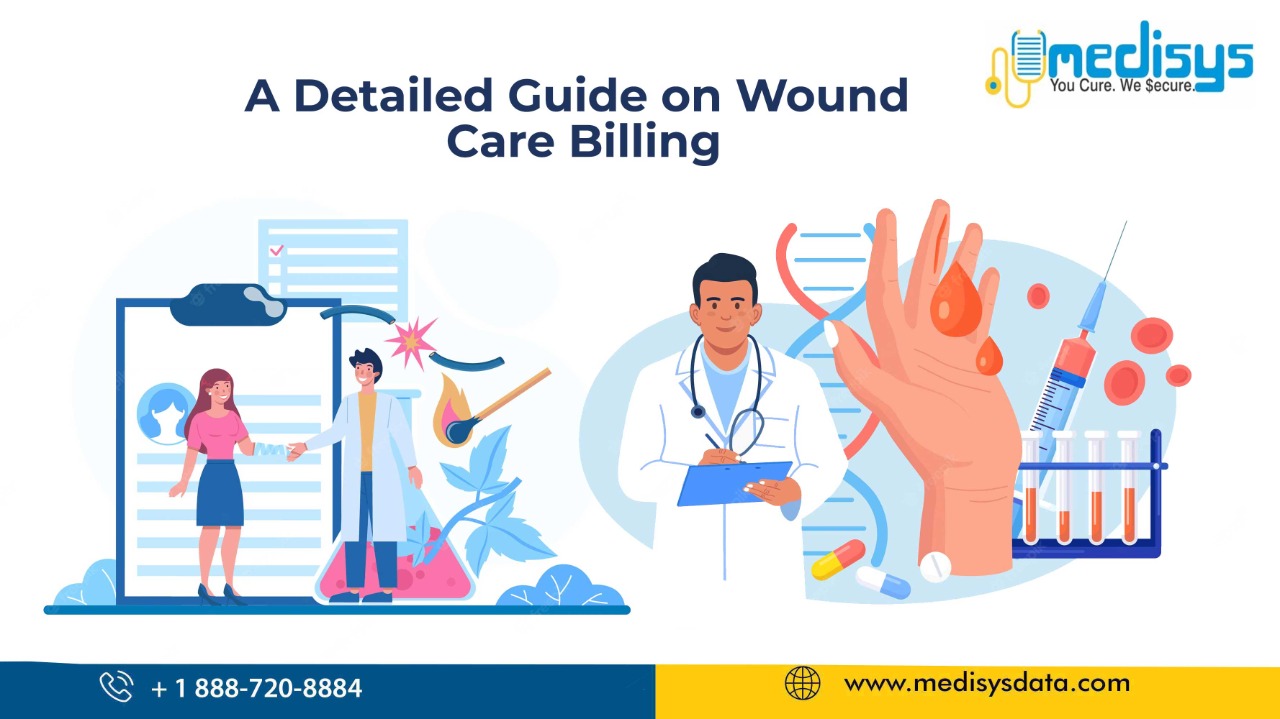Wound care has become increasingly significant with a growing population of the elderly. In addition to the difficulty of caring for patients with such wounds, there are issues with regulatory standards and billing practices that make it difficult to receive timely and appropriate reimbursements. Sounds like a problem?
The problem is that not all forms of wound care are paid for by insurance, and those that are reimbursed require a number of administrative tasks like correct documentation, precise detailing, and accurate coding. Before submitting a claim, clinicians at medical settings must determine whether the wound treatment complies with the requirements for medical necessity and whether the patient’s insurance coverage will pay for it. Understanding the requirements for prior authorization, insurance coverage, and medical necessity regulations is necessary for this. Now let’s understand a few basic answers before we jump straight into the details of wound care billing!
Why is outsourcing necessary in wound care billing?
By outsourcing, you can make sure that the medical billing process is error-free. Additionally, it reduces overhead expenses, increases payouts, and decreases claim rejections and denials. With time, you can notice an increase in claim reimbursements and a decrease in your account receivables, allowing you to more easily concentrate on your primary duty of providing patient care.
Why are medical billing and coding significant to the healthcare industry?
The healthcare business wouldn’t be able to transfer patient data effectively without medical billing and coding, and healthcare professionals would struggle to get paid for their services. With outsourcing, they can concentrate more on patient care procedures and effective patient management.
Healthcare providers should use medical billing agencies to handle all of their administrative billing and collections so as to keep their attention on providing high-quality treatment. In addition to providing full revenue cycle management services to all healthcare providers in the nation, Medisys Data Solutions is a reputable provider of medical billing and coding services.
Challenges of in-house wound care billing and coding
It is crucial to comprehend the guidelines with which you use the code, because codes alone do not determine the procedure coverage. Adding to the same, below mentioned are a few challenges when it comes to in-house wound care billing and coding:
- One of the most frequent mistakes is failing to take into account extra codes, such as the measurements of the debrided area.
- For wound care coding, it can be difficult to report non-selective and selective debridement areas accurately.
- Another problem is not reporting under the E/M service and reporting wound dressing separately.
- Complete review of the patient’s medical records is necessary in cases of any chronic diseases, and this includes the list of procedures offered to treat the wound, follow-ups, images documenting the wound’s progress, etc. This process can be daunting and exhausting.
- Most of the time, physicians fail to adequately document the specificity of the wound, which is a crucial element in choosing the right diagnosis code.
The following are necessary for wound care billing and coding:
- It is necessary to give a thorough account of the injury. It is important to gather information on the wound’s size, drainage, look, presence of infection, appearance, or any other underlying medical issues.
- The in-depth tissue layer that was debrided or removed during the medical operation should be completely described, along with the manner of debridement using nippers, scalpels, curettes, or scissors.
- The documentation must contain exact details about how the tissues were sliced.
- A piece of in-depth information on the healing process, such as the required dressing, the wound’s healing period, appointments, and the necessary follow-up visits.
- Full disclosure of the healing process, including the extent of the wound’s recovery.
- A detailed outline to help spot any further new medical conditions that would require antibiotics, a biopsy, further testing, podiatric consulting, or vascular procedures.
Here are 3 compelling reasons to outsource your wound care medical billing:
1. Statistical discrepancy is present
According to data, 34% of beneficiaries receive their money in 90 days, compared to 20% who do so in 30 days. Do you feel equipped to manage this type of statistics? Can you complete the beneficiaries’ documents in accordance with the necessary standards? When you choose to outsource your medical billing for wound care, the medical billing companies are able to track prospective readmissions and ensure that the necessary coding and billing are done correctly.
2. Keep your primary practice in mind
One can lose emphasis on core practice since healthcare regulatory practice is always evolving. You can get complete relief from time-consuming procedures with the aid of skilled billers and coders from wound care medical billing outsourcing. Your outsourcing party should be aware, as a medical billing company, that certain therapy modifiers or revenue codes cannot be reported when wound care services are not rendered by a therapist. Your thoughts about coding and billing will be completely eliminated by a professional wound care billing service provider.
3. Complexities of insurance coverage policies
Patients have access to numerous coverage options through both public and private insurance. How well-versed in medical and insurance matters is your staff? Do they know if the wound care will be covered by the CMS? The impartial auditor may ascertain the medical need if local Medicare intermediaries or private guidelines lack clear national standards and frequently random modifications. By outsourcing your medical bills for wound care, you can leave the details to the pros.
The benefits of using Medisys Data Solutions as your billing and coding partner
- Full compliance with HIPAA
- Instant follow-up on AR
- Anytime assistance for both technical and non-technical problems
- Expert coding
- Less possibility of denial
- Less potential for rejection
- Years of experience
“Did you know” Corner!
Wound care billing services now account for a significant portion of the compensation received by healthcare service providers. However, chronic wounds from long-term illnesses like obesity and diabetes are more likely to harm the skin and can only be paid for with correct medical billing and coding for wound care. In fact, various wound care procedures like cleaning, assessment, debridement, reapplication, and removal of the wound dressing are also recorded and paid for using the right wound care billing and coding methods.
Conclusion
Wound care coding and billing for private offices is becoming an arduous process due to the growing number of patients. The greatest option for quality assurance measures and for the best reimbursements is to outsource the billing and coding for wound care.














